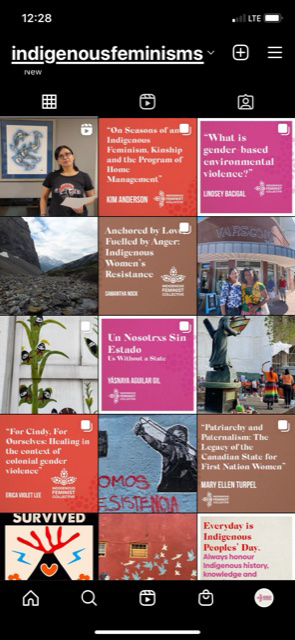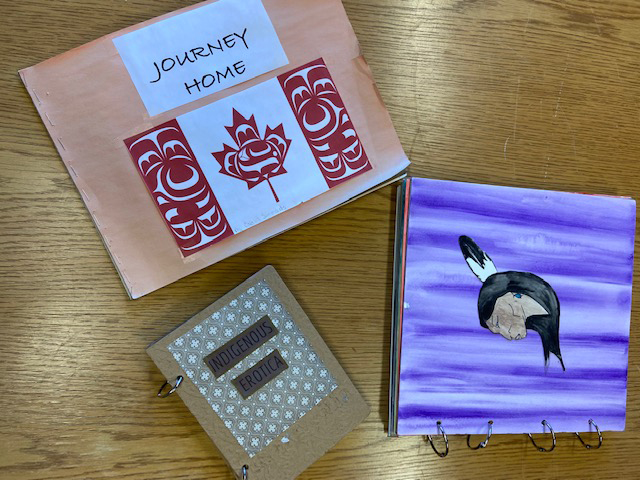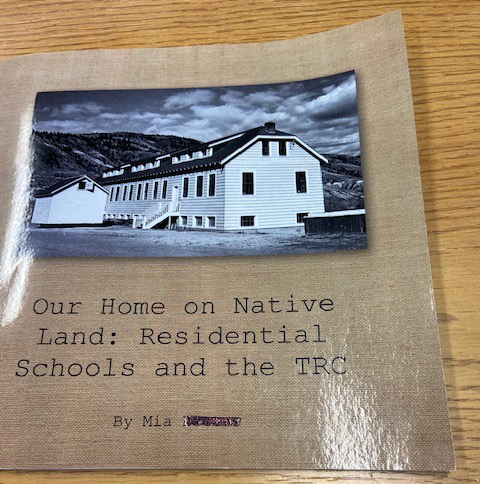Department of Political Science Indigenous Initiatives
Below are practices and projects that we have undertaken to commit to the educational recommendations of Truth and Reconciliation.
Lead: Rob McMahon
The Piikani Digital Literacy and Cultural Camp Program has run from 2017-2022, and concludes on October 1, for an education transfer ceremony led by Herman Many Guns at the Piikani Nation Secondary School.
During the program students learn topics like basic digital media production and data stewardship, and then apply their skills at an overnight camp to document teachings from Piikani Elders. Monday's event will transfer the finalized curriculum to the school for use in their Career & Technology Studies courses.
This link goes to a story about the project: https://www.isocfoundation.
Lead: Matthew Wildcat
Matthew Wild cat has worked on many videos and commentaries in the media on residential schools and the National Truth and Reconciliation Day.
- Panel discussion that is airing on the 30th. Already recorded and is a solid productionhttps://downiewenjack.ca/
events/national-day-for-truth- and-reconciliation/ - Residential Schools:https://www.youtube.com/watch?
v=r0YUUN7fDKg - Discussion with Dan Levy on treaties: https://www.youtube.com/watch?
v=txQBWeSKRuo -
Wildcat, Matthew, and Brian Wildcat. 2022. “Pope Francis Arrives in Canada as Indigenous Groups Seek a Full Apology.” Interview by Emma Jacobs. Morning Edition, NPR, July 25, 2022. Audio, 5:03. https://www.npr.org/2022/07/
25/1113369892/pope-francis- arrives-in-canada-as- indigenous-groups-seek-a-full- apology
Lead: Fiona Nicoll
Giwii-nisidopanmin odaminowin is a three-year collaboration with Indigenous youth in Northwestern Ontario to generate academic knowledge about their current involvement in gambling and video-gaming and the intersection of the two, as video-gaming has been rapidly monetized through micropayments and lootboxes. Funded by the Alberta Gambling Research Institute and facilitated by IndigeSpheres to Empowerment, a federally incorporated Indigenous non-profit organization based in Thunder Bay, four academic researchers, an Indigenous youth mentor and art and bodywork facilitators are conducting interdisciplinary, land-based research in Northern Ontario and Australia focused on gambling and video-gaming.
Now in its second year, this research intervention is:
- producing new interdisciplinary knowledge of Indigenous video-gaming and gambling within a youth-led and driven research program;
- facilitating Indigenous youth training with academic experts on gambling, video-gaming and trauma-informed research;
- equipping Indigenous youth with mentoring to become lifelong learners, within and outside of formal education institutions; and,
- developing empowering knowledge collaboration between youth leaders, academic researchers and creative facilitators.
Lead: Fiona Nicoll/Jared Wesley
Our MA in Policy Studies is the only program of its kind to explicitly address TRC Call to Action #57 (see below). We aim to meet this call by integrating Indigenous perspectives, knowledge, and teachings in our classes, and through a dedicated, mandatory course on Indigenous Engagement, Governance, and Policy (POL S 532).
Call to Action #57
We call upon federal, provincial, territorial, and municipal governments to provide education to public servants on the history of Aboriginal peoples, including the history and legacy of residential schools, the United Nations Declaration on the Rights of Indigenous Peoples, Treaties and Aboriginal rights, Indigenous law, and Aboriginal–Crown relations. This will require skills based training in intercultural competency, conflict resolution, human rights, and anti-racism.
Lead: Isabel Altamirano-Jimenez
 Dr. Altamirano-Jimenez, in POLS 327 Indigenous Politics in Canada, has worked with students to create booklets and zine assignments Canada to teach others about the TRC and the Residential School system. She has also created an Instagram account, @indigenousfeminisms to isseminate Indigenous feminist scholarship, ideas and practices to a wider audience.
Dr. Altamirano-Jimenez, in POLS 327 Indigenous Politics in Canada, has worked with students to create booklets and zine assignments Canada to teach others about the TRC and the Residential School system. She has also created an Instagram account, @indigenousfeminisms to isseminate Indigenous feminist scholarship, ideas and practices to a wider audience.

